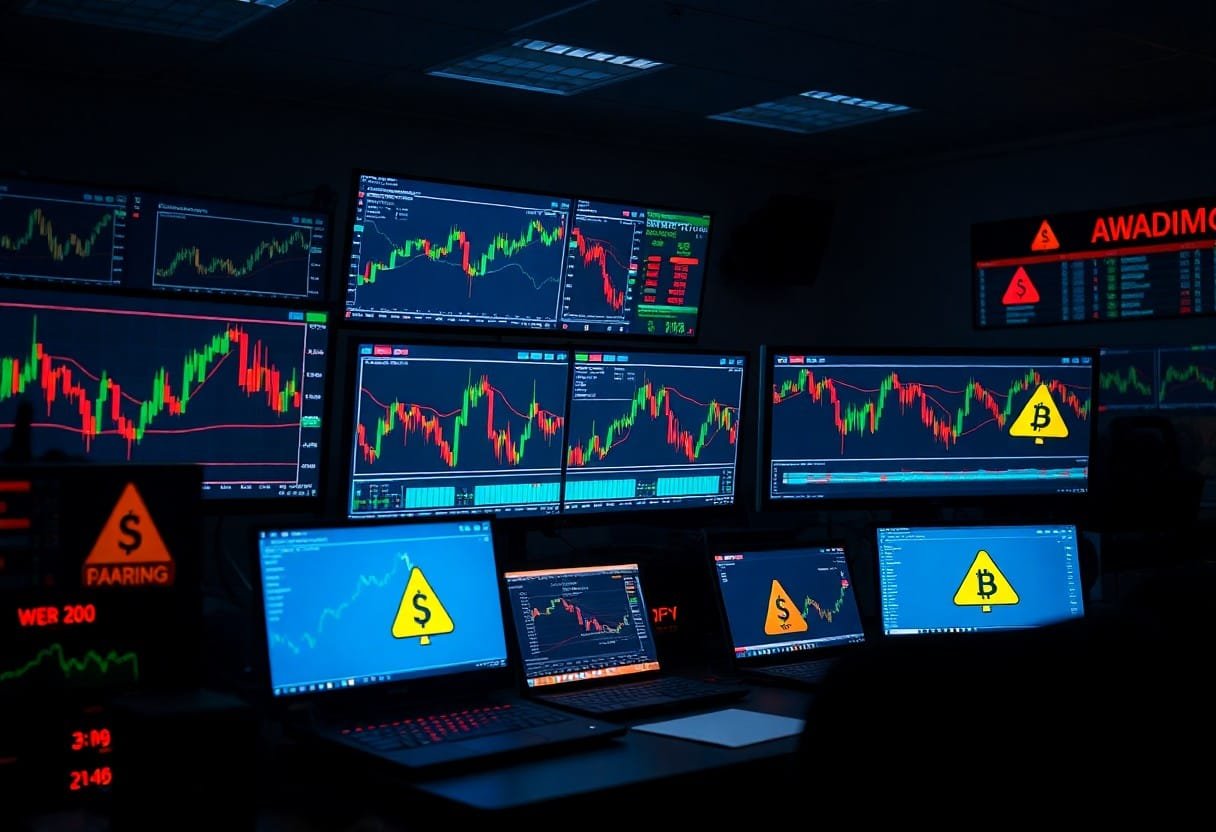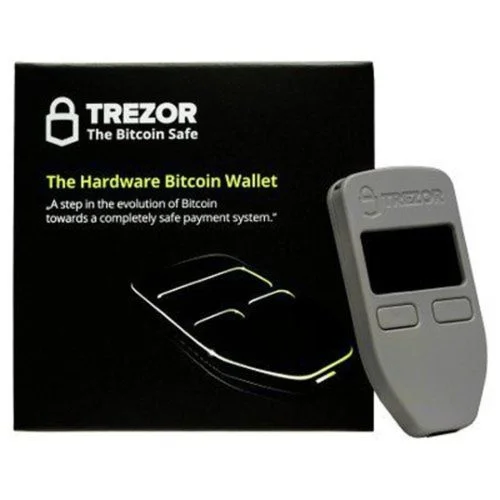There’s a need for secure and reliable wallets when it comes to storing your altcoins. With the ever-growing popularity of cryptocurrencies, ensuring the safety of your digital assets should be a top priority. In this post, you’ll discover various types of wallets designed to protect your altcoins, from hardware options to software solutions. Whether you’re a seasoned investor or just starting out, this guide will help you choose the right wallet to keep your investments secure and accessible.
Key Takeaways:
- Security Features: Look for wallets with advanced security measures like two-factor authentication, biometric access, and strong encryption to protect your altcoins.
- Compatibility: Ensure the wallet supports a wide range of altcoins to maximize storage options and flexibility for your digital assets.
- User Experience: Choose wallets that offer a user-friendly interface and customer support to enhance your overall experience and make managing your altcoins easier.
Understanding Altcoin Wallets
While navigating the world of cryptocurrencies, it’s important to understand altcoin wallets. These digital wallets serve as secure storage solutions for your altcoin investments. With different types of wallets available, each offering varying features, choosing the right one can enhance your experience and protect your assets.
Types of Wallets
While selecting an altcoin wallet, consider the various types available:
- Software Wallets
- Hardware Wallets
- Paper Wallets
- Web Wallets
- Mobile Wallets
This variety allows you to tailor your choice based on your specific needs and security preferences.
| Wallet Type | Description |
| Software Wallets | Applications on your computer or smartphone. |
| Hardware Wallets | Physical devices that store your funds offline. |
| Paper Wallets | Physical printouts of your keys and QR codes. |
| Web Wallets | Online platforms that allow access to your altcoins. |
| Mobile Wallets | Apps specifically designed for mobile devices. |
Importance of Security
To successfully manage your altcoin investments, security must be a priority. Implementing strong security measures protects your funds from potential threats, such as hacking and phishing attempts. Adopting a wallet with advanced security features not only keeps your digital assets safe but also gives you peace of mind while navigating the volatile cryptocurrency market.
Types of wallets vary in security levels, with hardware wallets often providing the best protection due to their offline storage capabilities. Software and mobile wallets, while convenient, require additional security measures, including the use of strong passwords and two-factor authentication. By prioritizing security, you can safeguard your altcoin investments from unauthorized access and potential loss.
Top Hardware Wallets for Altcoins
Even in a rapidly evolving cryptocurrency landscape, hardware wallets remain a secure choice for storing your altcoins. Unlike online wallets, these devices provide an isolated environment for your private keys, protecting your investments from hacks or malware. Investing in a reliable hardware wallet ensures that you have peace of mind while navigating the world of altcoins.
Features and Benefits
Behind every great hardware wallet are imperative features that enhance your security. These devices typically offer multi-signature support, password protection, and the ability to store multiple currencies, making them versatile. Additionally, they often integrate with various software wallets for easy transactions, allowing you to access your assets securely while enjoying a seamless user experience.
Recommended Models
After evaluating various options, several hardware wallets stand out for their robust security and user-friendly design. Leading models like the Ledger Nano X, Trezor Model T, and KeepKey cater to different preferences and requirements, ensuring that you can find the perfect fit for your altcoin storage needs.
Consequently, you can confidently choose from these recommended models based on your priorities, whether it be portability, supported currencies, or ease of use. The Ledger Nano X excels with its Bluetooth capabilities and large storage capacity, while the Trezor Model T features a full-color touchscreen for enhanced navigation. KeepKey, known for its sleek design, offers a budget-friendly alternative without sacrificing security. Each of these devices provides reliable protection and peace of mind for your altcoin investments.
Best Software Wallets for Altcoin Storage
Despite the numerous options available, software wallets stand out for their convenience and user-friendliness. They allow you to store, manage, and transact your altcoins effectively. For more insights, check out Top Crypto Wallets for Bitcoin & Altcoins: The Ultimate Guide.
Mobile Wallets
To ensure your altcoins are accessible on-the-go, mobile wallets provide a perfect solution. They are designed for smartphones, making management and transactions a breeze.
Desktop Wallets
Between various options, desktop wallets offer a robust solution for serious users who prioritize security and control. These wallets are installed directly on your computer and provide a higher level of protection compared to online wallets.
For instance, desktop wallets often incorporate advanced security features, such as encrypted private keys and support for multiple currencies, giving you greater control over your altcoin holdings. By storing your assets on your device, you minimize the risks associated with internet access, thereby giving you peace of mind as you navigate the world of cryptocurrencies.
Secure Online Wallets
Not all online wallets are created equal. When choosing a secure online wallet for your altcoins, look for platforms with top-notch security features, such as two-factor authentication and encryption. Always ensure you’re using wallets from reputable providers, and be cautious with your private keys, as they are vital for your asset security.
Exchange Wallets
By storing your altcoins in exchange wallets, you’ll have easy access for trading and liquidity. However, while they offer convenience, these wallets expose your cryptocurrencies to higher risks since exchanges can be susceptible to hacks and security breaches. If you choose this route, make sure you’re using a reputable exchange with strong security measures in place.
Risks and Precautions
Before using online wallets, be aware of the potential risks involved, including hacking and phishing attempts. It’s crucial to take precautions, such as using unique passwords, enabling two-factor authentication, and avoiding public Wi-Fi networks when accessing your wallet. Always stay informed about the latest security updates and practices to protect your assets.
Plus, consider diversifying your storage methods. Keeping some of your altcoins in a secure offline wallet can further mitigate risks associated with online wallets. Regularly updating your software and being vigilant about suspicious emails or messages can also enhance your overall security. Your diligence is key to safeguarding your digital assets.
Comparing Wallet Features
Now that you understand the importance of finding the right wallet for your altcoins, it’s time to compare the necessary features of various wallet options. This comparison will help you select a wallet that best fits your needs. Examine the detailed comparison in the table below:
Wallet Feature Comparison
| Feature | Description |
|---|---|
| Security | Levels of encryption and backup options available. |
| User Experience | Ease of use and interface design. |
| Multi-Currency Support | Range of cryptocurrencies supported. |
| Customer Support | Availability of assistance and guidance. |
User Experience
The user experience is vital when choosing a wallet. You want an interface that is intuitive and easy to navigate, allowing you to manage your assets without confusion. A seamless experience ensures you can execute transactions quickly and efficiently, ultimately enhancing your overall satisfaction with the wallet.
Multi-Currency Support
Along with usability, multi-currency support stands out as another key feature to consider. A wallet that accommodates various digital currencies provides you with the flexibility to diversify your investment portfolio, making it easier to hold multiple altcoins in one secure location.
This ability to manage various cryptocurrencies not only streamlines your transactions but also reduces the need for multiple wallets, which can expose you to greater risk. By selecting a wallet that supports numerous digital assets, you ensure that your investments remain centralized and easily accessible, allowing you to stay informed on market activities while keeping your altcoins safe.
Tips for Keeping Your Altcoins Safe
Keep your altcoins secure by following these vital tips:
- Use hardware wallets for offline storage.
- Enable two-factor authentication (2FA) on exchanges.
- Regularly update your wallet software.
- Be cautious of phishing attacks.
This ensures your digital investments remain protected. For more information, check out the 10 Best Altcoin Wallets to Use in 2024.
Best Practices for Storage
Your choice of storage method is vital for safeguarding your altcoins. Always opt for reputable wallets, preferably hardware varieties, as they provide higher security than software wallets. Regularly back up your wallet information and store it in multiple secure locations. Keep your private keys confidential, and avoid sharing them with anyone to minimize the risk of theft.
Avoiding Common Pitfalls
An effective strategy for safeguarding your altcoins includes steering clear of frequent mistakes. Investing in a wallet without doing proper research can lead to losses. Avoid sharing sensitive information about your holdings or wallet online, as this may expose you to scammers. Making transactions on public Wi-Fi networks poses significant risks, so always use a secure connection for your crypto dealings.
Keeping a keen eye on your security measures and usage practices can help you avoid common pitfalls when managing your altcoins. Stay informed on the latest scams and security tips, and consider regularly reviewing your wallet and transaction methods. By maintaining vigilance and employing careful strategies, you can effectively protect your cryptocurrency investments.
Final Thoughts
For anyone involved in the world of altcoins, selecting the right wallet is imperative for protecting your investments. Your choice should align with your trading habits and security needs, whether you prioritize convenience or enhanced safety. By carefully considering the options available, you can ensure your altcoins are stored safely, giving you peace of mind while navigating the crypto landscape. Take the time to evaluate the wallets discussed, and choose one that best fits your strategy for managing your digital assets.
Q: What types of wallets are best for storing altcoins securely?
A: There are several types of wallets that offer secure storage for altcoins. Hardware wallets, such as Ledger and Trezor, are highly recommended due to their offline storage capabilities, which protect against online hacks. Software wallets can also be secure if used correctly; desktop and mobile wallets like Exodus and Atomic Wallet offer user-friendly interfaces and strong security features. Additionally, paper wallets can be a good option for long-term storage, as they are completely offline. Ultimately, the best choice will depend on your individual needs, including how frequently you trade and what level of security you prefer.
Q: How do I choose the right wallet for my altcoins?
A: When choosing a wallet for your altcoins, consider several factors such as the types of altcoins you plan to store, security features, ease of use, and accessibility. Make sure the wallet supports the specific altcoins you are interested in since not all wallets are compatible with every cryptocurrency. Look for features like two-factor authentication, multi-signature support, and backup options. User reviews and ratings can also provide insights into the wallet’s reliability and safety. Ideally, prioritize a wallet that balances security with convenient access for your trading needs.
Q: What precautions should I take to ensure the safety of my altcoins?
A: To safeguard your altcoins, implement the following precautions: First, always keep your wallet’s software updated to mitigate vulnerabilities. Use strong, unique passwords and enable two-factor authentication wherever possible. Back up your wallet regularly and store the backup in a separate, secure location—this could be a USB drive or a dedicated cloud storage service with encryption. Additionally, be cautious about sharing your private keys and never disclose sensitive information. If using an online wallet, ensure it has a reputation for robust security measures. By taking these steps, you can significantly enhance the safety of your altcoin holdings.








